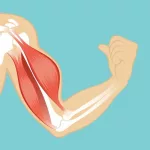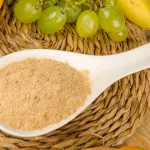Shedding pounds can be difficult. Research indicates that roughly one in four individuals with overweight who lose weight through conventional approaches are able to keep it off.
Those who regain their lost weight frequently turn to alternatives like dietary supplements and herbal remedies. Forskolin is one such natural compound touted as an effective weight-loss aid. But is there solid evidence to back that claim?
This piece examines forskolin in detail and reviews the science behind its purported effects.
:max_bytes(150000):strip_icc()/6147642027_8542f739c5e77c0001422ee2.jpg)
What is forskolin?
Forskolin became widely discussed in the U.S. after an appearance on “The Dr. Oz Show” in January 2014, which increased interest in its use as a weight-loss supplement.
It is an active constituent derived from the roots of Coleus forskohlii, an Indian plant related to mint. For generations, this tropical herb has been employed in traditional medicinal practices to address a variety of ailments.
Modern research suggests some of forskolin’s proposed health effects — such as easing coughs, improving asthma symptoms, aiding sleep, and treating certain skin conditions — may be plausible or supported to some extent.
How do weight loss supplements work?
Supplements marketed for weight loss claim to aid slimming through several mechanisms, including:
- reducing the absorption of nutrients
- promoting fat breakdown
- increasing calorie expenditure
- suppressing appetite
Because absorption requires the breakdown of nutrients, products that lower absorption generally act on digestive enzymes.
For example, some compounds block pancreatic lipase to cut fat uptake. Others inhibit enzymes like amylase and glucosidase, thwarting carbohydrate digestion and absorption.
In both scenarios, weight loss is achieved by limiting energy intake.
Additionally, agents that encourage fat breakdown — often called fat burners — may work by decreasing fat storage or by preventing the creation of new fat (lipogenesis).
Supplements that raise energy expenditure, such as caffeine, tend to exert thermogenic effects — increasing heat production.
This elevates resting energy expenditure (the calories burned at rest) and can support fat reduction.
Finally, appetite-reducing supplements operate by increasing hormones that create satiety (like peptide YY and GLP-1) and lowering hunger-stimulating hormones such as ghrelin.
Does forskolin actually help you lose weight?
Although some research has explored forskolin’s role in fat metabolism, much of it consists of in vitro or animal studies, which may not translate directly to people. Human studies are limited.
Forskolin is thought to enhance the activity of hormone-sensitive lipase, an enzyme that mobilizes stored triglycerides and releases fatty acids for energy use (8).
Put simply, forskolin may shrink fat cells by encouraging fat breakdown — the same mechanism that comes into play when your body uses fat for fuel.
However, merely releasing stored fat does not guarantee weight loss. A calorie deficit must accompany fat mobilization.
In other words, weight loss requires that calories burned exceed calories consumed, which was reflected in a small 2015 clinical trial.
That study enrolled 30 overweight or obese men. Participants took either 250 mg of Coleus forskohlii extract (10% forskolin) twice daily or a placebo for 12 weeks.
At the trial’s end, there were no meaningful differences in weight loss between the two groups. Both groups did experience reductions in waist and hip measurements, which researchers attributed to calorie restriction rather than forskolin.
Conversely, an earlier 2005 trial in 30 overweight or obese men suggested forskolin might support fat loss while preserving lean mass.
The forskolin group also showed a notable rise in free testosterone. Testosterone can promote fat release from adipose tissue and support muscle growth, which could partly account for the observed effects.
Despite these findings, the overall body of evidence is insufficient to make strong recommendations. Further high-quality research is required.
Other health benefits of forskolin supplements
The Coleus plant, which provides forskolin, has a long history in traditional medicine.
It has been used to address heart conditions, asthma, bronchitis, and constipation.

In people, forskolin supplementation may also (8, , ):
- reduce fasting insulin and improve insulin resistance
- lower elevated blood pressure
- decrease high intraocular pressure
Dosage and side effects
Common dosing recommendations for forskolin are 10–25 mg of Coleus forskohlii extract (standardized to 10% forskolin) taken twice daily.
Although generally considered safe and well tolerated, some users report gastrointestinal complaints such as diarrhea.
Frequently asked questions about forskolin
What are the dangers of taking forskolin?
Overall, forskolin appears to be safe for most people. However, a subset of users may experience diarrhea.
This adverse effect may occur because forskolin can increase stomach acid production, which in turn may lead to looser stools and more frequent bowel movements.
Reported cases of forskolin-induced diarrhea tend to be mild, with symptoms resolving within about four weeks of use.
Can forskolin raise blood pressure?
Contrary to concerns, current evidence indicates forskolin may help lower blood pressure.
The mechanism likely involves vasorelaxation — relaxation of the muscular walls of blood vessels — which dilates arteries and veins and improves blood flow (8).
Is forskolin good for your heart?
Beyond its potential to reduce blood pressure, forskolin has been used in the context of heart failure treatment.
Research indicates it can elevate levels of the signaling molecule cAMP (3′-5′-cyclic adenosine monophosphate), which influences heart rate and the force of cardiac contractions (8, , ).
Still, human studies on forskolin’s cardiovascular benefits are limited. Consult a healthcare provider before using it, especially if you have heart disease.
The bottom line
Current evidence does not clearly show that forskolin causes weight loss.
One trial from 2005 indicates it might boost testosterone and favor fat loss while helping maintain muscle, but the data are sparse.
Overall, the research is too limited to draw firm conclusions.
As a rule, remain cautious about weight-loss supplements. Some appear promising in early small studies but fail to demonstrate benefit in larger, more rigorous trials.
The healthiest and most reliable strategy for losing weight usually involves improving your diet and overall health — weight loss often follows as a consequence.


















Leave a Reply
You must be logged in to post a comment.